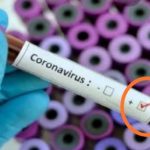UNAIDS has called for action against the criminalization of people who use drugs, for the redress of criminalization’s negative effects on HIV, viral hepatitis and other health issues, for the respect of human rights and for more funding for community-led harm reduction programmes.
“UNAIDS is committed to supporting countries in their journey towards the decriminalization of drug possession and to full-scale implementation of harm reduction programmes,” said UNAIDS Executive Director, Winnie Byanyima. “UNAIDS calls for the full involvement of communities of people who use drugs in achieving legal reform aimed at decriminalization and in the organization of harm reduction programmes at the country level. This will help us to end inequalities and end AIDS.”
People who use and inject drugs are among the groups at highest risk of acquiring HIV but remain marginalized and often blocked from accessing health and social services. In 2020, 9 percent of all new HIV infections were among people who inject drugs. Outside of sub-Saharan Africa this rises to 20 percent . Although women represent less than 30 percent of the number of people who use drugs, women who use drugs are more likely to be living with HIV than their male counterparts.
Timely introduction and full-scale implementation of accessible harm reduction programmes can prevent HIV infections, as well as many cases of viral hepatitis B and C, tuberculosis and drug overdose. The United Nations system is united in promoting harm reduction services and decriminalization of personal possession of drugs, based on the evidence that harm reduction and decriminalization provide substantial public and personal health benefits and do not increase the number of people with drug dependency.
Despite this position, reflected in the United Nations system common position supporting the implementation of the international drug control policy through effective inter-agency collaboration, in reality less than one percent of people who inject drugs live in countries with the United Nations-recommended levels of coverage of needles, syringes and opioid substitution therapy, and the funding gap for harm reduction in low- and middle-income countries sits at a dismal 95 percent.
Even where harm reduction services are available, they are not necessarily accessible. Punitive drug control laws, policies and law enforcement practices have been shown to be among the largest obstacles to health care in many countries. Criminalization of drug use and harsh punishments (such as incarceration, high fines or removal of children from their parents) discourage the uptake of HIV services, drive people underground and lead to unsafe injecting practices, and increase the risk of overdose.
Women who use drugs face higher rates of conviction and incarceration than men who use drugs, contributing to the increased levels of stigma and discrimination they face in health-care settings. In effect, criminalization of drug use and possession for personal use significantly and negatively impact the realization of the right to health.
Earlier this year, United Nations Member States set bold global targets on decriminalization of drug possession for personal use and on elimination of stigma and discrimination against people who use drugs and other key populations. To reach these targets by 2025, strategic actions at the country level need to start today.








